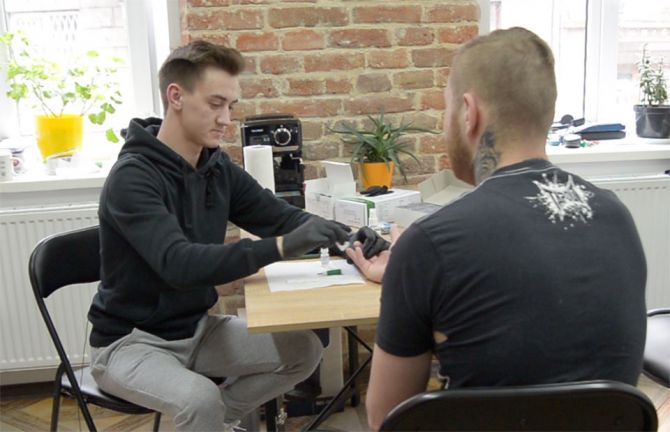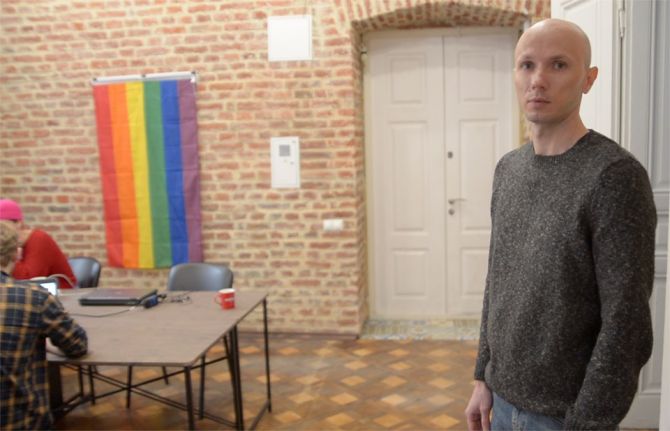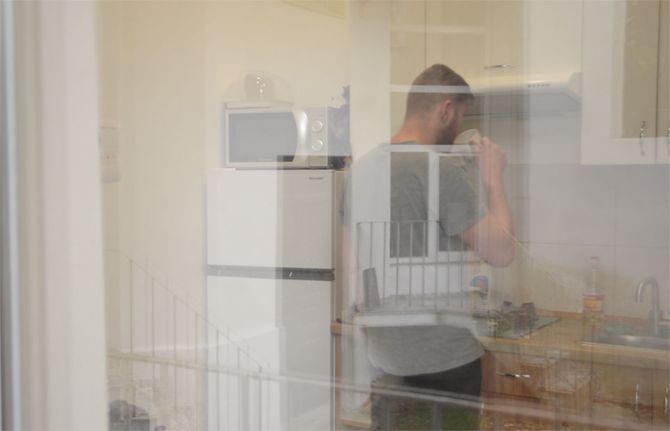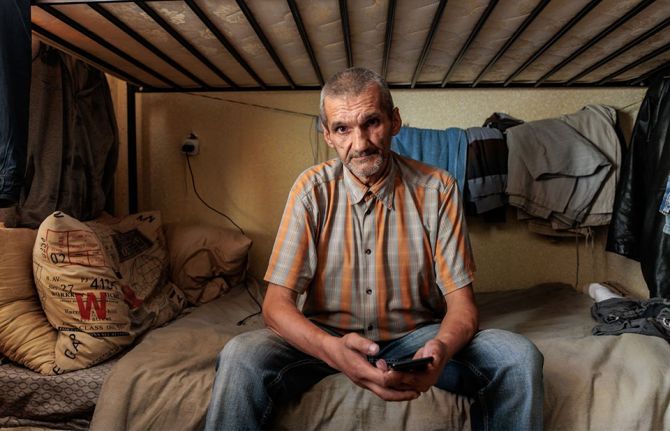



Feature Story
LGBTQ+ shelter in Lviv provides lifeline to displaced Ukrainians
27 February 2023
27 February 2023 27 February 2023Oleg Kucherenko (not his real name) traveled from the eastern part of Ukraine to Lviv, in the western part of the country when his city, Kherson, was occupied by Russian forces. He, like many other representatives of the LGBTQ+ community was desperately looking for a safe place to stay.
His friend recommended the Facebook group of the Alliance Global - the largest LGBTQ+ organisation in Ukraine, who helped him find a spot in a shelter.
Once there, he got food, a place to sleep, and was able to contact friends and colleagues courtesy of electric generators and internet service. Up to ten people can stay in this particular shelter. The shelter administrator, Vadim Pryzenko, sees this as a lifeline.
“Our clients can get not only a place to live but also food and social and psychological support,” he said. “For those who are not living here, we provide humanitarian aid, food, hygienic products, and also individual financial support,” Mr Pryzenko said.
Since the war began a year ago, more than 7.9 million Ukrainians have fled abroad and another 6.5 million moved within the country.
Due to growing demand to find accommodation for internally displaced people that Alliance Global experienced, several organizations, including the Fondation de France, International Office of Migration (IOM) and UNAIDS’ Emergency Ukraine Fund, helped them set up the shelter. The shelter also provides health care and HIV services.
Mr Kucherenko got tested for HIV, hepatitis, and other diseases. His HIV test came back positive. He quickly met with a social worker, Andriy Kharatin, who accompanied him to the Lviv AIDS center where he got confirmation of his diagnosis, and additional tests.
"Several days later, with our help connecting him with to the health care system, Oleg started anti-retroviral therapy,” Mr Kharatin said.
Ukraine has the second - after the Russian Federation- biggest HIV epidemic in Eastern Europe and Central Asia (240 000 people are living with HIV according to 2022 estimates).
The country was making good progress in the AIDS response before the war – increasing the number of people living with HIV on antiretroviral treatment to nearly 60%.
However due to their destruction or occupation, more than 30 medical institutions providing HIV services have had to stop their operations, and logistics and supply chains have been broken. Despite this, Ukraine continues to help people living with HIV. Civil society has played a crucial role in adapting their response, engaging and reaching people in need.
“As a doctor, I am very pleased with the cooperation with Alliance Global,” said Dr. Olena Pavlishina from the Lviv Clinical Hospital. “Thanks to this cooperation we have the opportunity to be in touch with both internally displaced people and people who do not trust doctors much.”
In the past, she explains, a lot of the work was handled by health professionals.
“This part of the work that was previously done by health workers is now being done by social workers and civil society organisations,” she said.
And Mr Pryzenko doesn’t imagine that changing in the near future. He fears that if the war drags on, more people will come to the shelter and need services.
Meanwhile, Mr Kucherenko lives and works in Lutsk, not far from Lviv. He picks up his HIV medicine supply for three months and will get his next batch by mail when needed. He also stays in touch with his social worker for psychological support online.
Region/country
Related
 Ukraine: Keeping people in care
Ukraine: Keeping people in care

23 February 2026
 Women, HIV, and war: a triple burden
Women, HIV, and war: a triple burden

12 September 2025
 Displacement and HIV: doubly vulnerable in Ukraine
Displacement and HIV: doubly vulnerable in Ukraine

11 August 2025
